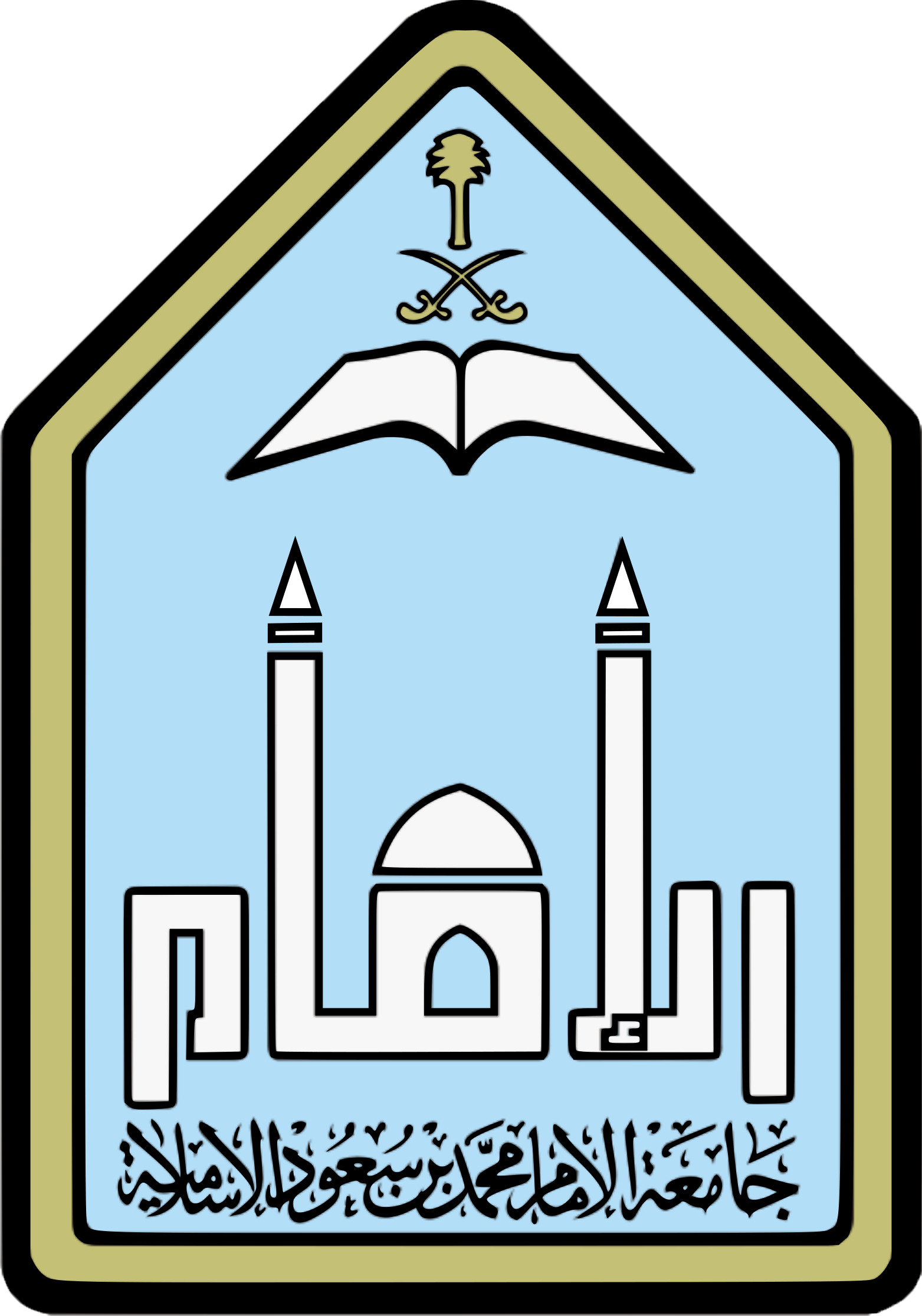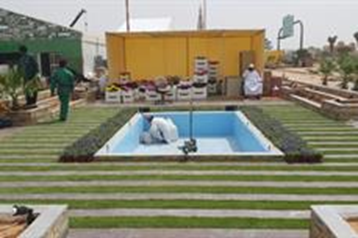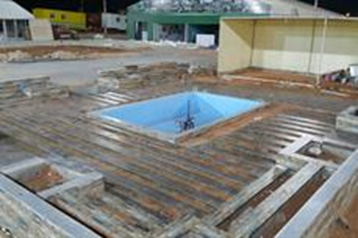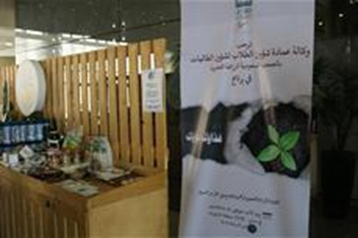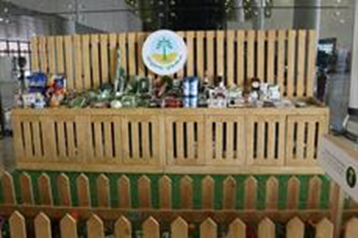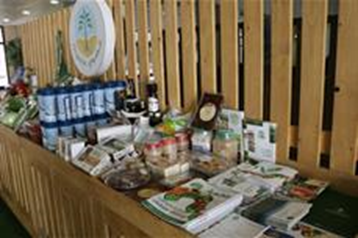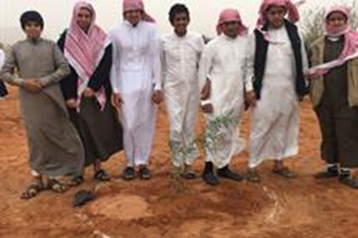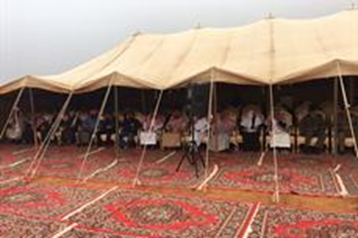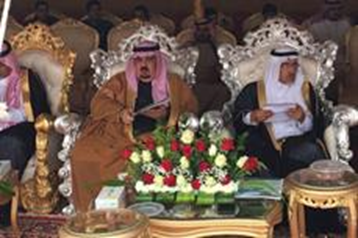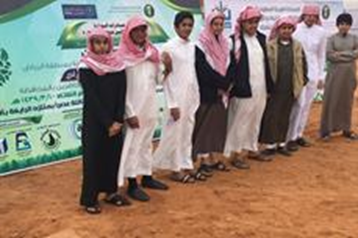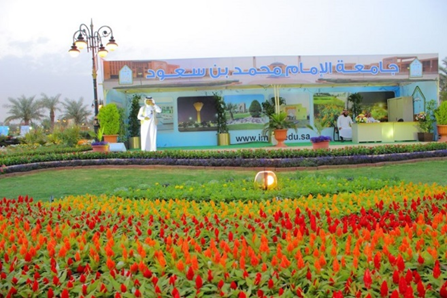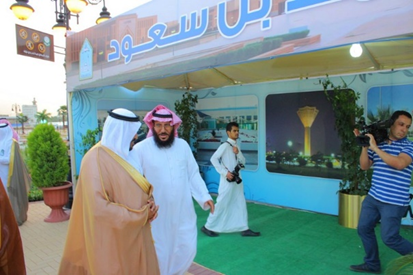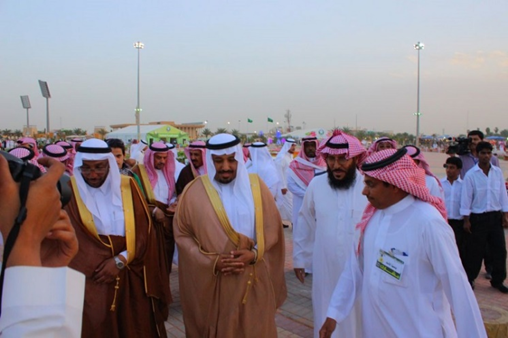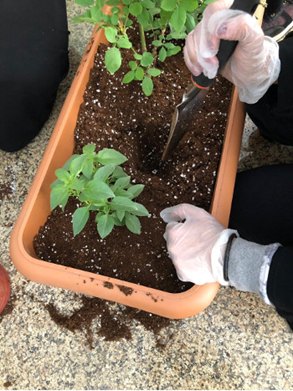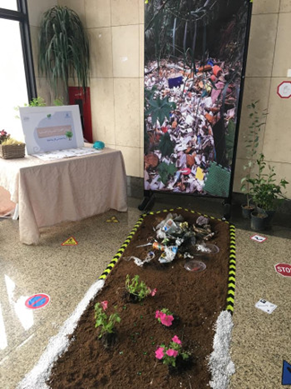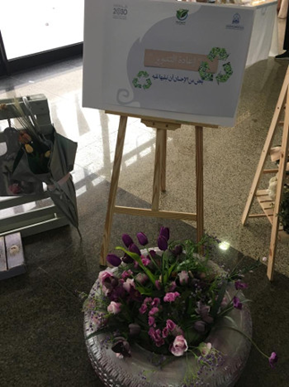Introduction
Sustainable Development Goal (SDG 15 or Global Goal 15) refers to Life On Land , the purpose of goal 15 is protect, restore and promote sustainable use of terrestrial ecosystems, sustainably manage forests, combat desertification, and halt and reverse land degradation and halt biodiversity loss and preserving diverse forms of life on land requires targeted efforts to protect, restore and promote the conservation and sustainable use of terrestrial and other ecosystems. Goal 15 focuses specifically on managing forests sustainably, halting and reversing land and natural habitat degradation, successfully combating desertification and stopping biodiversity loss. All these efforts combined aim to ensure that the benefits of land-based ecosystems, including sustainable livelihoods, will be enjoyed for generations to come.
To retain the integrity and vitality of natural resources today and for future generations and to ensure long-term socio-economic growth and prosperity, sustainable management of land is key. Business can directly contribute to this SDG by measuring, managing and mitigating its impact and dependence on land and ecosystems. Companies can implement strategies to incentivize sustainable land use, responsible forest management and environmental stewardship. To secure supply of natural resources and raw material in the future, companies will also have to increase efforts to restore degraded land. By scaling up research and development in innovation, investing in natural infrastructure and implementing responsible sourcing policies, companies play an integral part in preserving and restoring vital ecosystems, promoting the sustainable use of land and forests, while retaining consumer confidence in their product offerings.
The Kingdom of Saudi Arabia’s Vision 2030 prominently includes a number of objectives to achieve the fifteenth goal of sustainable development. The Government of the Kingdom has also issued regulations to protect protected areas of wildlife and plants. It regulates hunting for wild animals and birds, trafficking in endangered species.
The Kingdom of Saudi Arabia’s initiatives for preserving wildlife
Establishment of a seed bank.
Sustainable development and management of rangelands and forests and combating desertification.
National Program for Environmental Awareness and Sustainable Development.
The Department of Agriculture of the Department of Operation and Maintenance is preparing to equip the university pavilion with the annual Riyadh Spring Festival 1436 AH, and the university pavilion in each festival is one of the distinctive pavilions that are admired by visitors, and has won the first place in more than one festival in the past years, and the head of the Department of Agriculture Eng. Abdulrahman Al-Mutawa has reported that this year's pavilion will be more distinctive - God willing - from the point of view of location and output, and was prepared and prepared early, and the output was beautifully coordinated befitting the level of this university, adding that There will be an introduction to the summer and winter flowers at the university, providing agricultural consultations, and presenting some experiences and expertise in it, in addition to distributing some gifts in kind.
The festival will open on Thursday 28-5-1436 AH and is based in the Celebration Square in the neighborhood of Al-Jazeera (east of Riyadh city exit 16) on a square estimated at 60 thousand m2 and the area of the flower carpet for this year is about 15 thousand m2 and includes more than one million and five hundred 1500.000 flowers.The opening date will be at 5 pm, and the Secretariat has set the visiting times from 4:00 pm to 11:30 pm and the festival will continue for 10 consecutive days.
In the interest of the Deanship of Student Affairs for Female Students Affairs to enhance the sense of responsibility among university students and based on the Kingdom's Vision 2030, which attached great importance to the protection and sustainability of the environment, the Environment Club of the Deanship of Student Affairs for Female Students Affairs held an open meeting with Ms. Asma Ahmed Al-Sulaiman (owner of Sumi Park) entitled (Foundations of Agriculture and Raising a Home Garden with Sumi Park) addressed to university students through a live and remote broadcast through the program (Periscope) of the application (Twitter), on Tuesday. Corresponding to 10/3/1442 AH.
This meeting aims to promote and disseminate the culture of agriculture, and to learn about the foundations of successful agriculture, the ideal nutrition of plants and their breeding methods. At the end of the meeting, Ms. Asma Al-Sulaiman was able to introduce the methods and methods of how to create a small home garden in the house and take care of it.
It is worth mentioning that this meeting received a great turnout from the students, where the number of participants and attendance exceeded (742) participants.
With the idea and follow-up of the Department of Agriculture of the Department of Operation and Maintenance, the agricultural contractor in the university city sprayed a substance that enhances the green color on the green spaces of the university facilities before the visit of the Custodian of the Two Holy Mosques King Salman bin Abdulaziz - may Allah protect him - to the university, where it was noted that the impact of green spaces due to construction and the consequent breakage of irrigation water lines in addition to the wrong passage of cars on them, and to clarify that this material is known to specialists in agricultural works and is a material that enhances the color of green (Green Turf®) and is intended for the surfaces To give glasses and homogeneity in color, which is non-toxic and safe for gardeners and is widely used in sports stadiums and in periods of yellowing of vetiver from frost waves as well as after modern plantings of flats, the green color lasts for days and a suitable period allowing new growths to appear.
It is worth mentioning that the product is a Saudi industry from a company specialized in agricultural fertilizers (Astracom factory) Industrial license No. 1796/r (affiliated with Astra Agricultural Company).
The Deanship of Student Affairs, represented by the Deanship for Student Affairs, under the supervision of the Department of Student Programs and Activities and in cooperation with the Saudi Society for Organic Agriculture and the Department of Organic Production at the Ministry of Environment, Water and Agriculture, organized the program (Your Food is Your Medicine) on Sunday 23/6/1329 AH in the lobby of the educational building (324) in King Abdullah City for Female Students, to raise awareness of organic agriculture and its importance for a toxin-free environmental society.
The program aims to introduce students to the reality of organic agriculture in the Kingdom of Saudi Arabia, organic products and their benefits, outlets for the sale of organic products in the Kingdom, and procedures for organizing the activity of organic agriculture in the Kingdom and protecting it from any wrong practice, to promote the profession of organic agriculture and its products and everything that would develop this activity.
The program was inaugurated in the presence of the Deputy Deanship for Student Affairs, Dr. Maha bint Abdullah Al-Hadab, who stated that the interest in organic agriculture in the Kingdom of Saudi Arabia comes from the point of view of the care of the leaders of this country to achieve a vibrant society with a full environment, promote sustainability and quality, and spread the culture of healthy life among the segments of society in a way that contributes to the achievement of Vision 2030, and thanked the Saudi Society for Organic Agriculture and the Department of Organic Production in the Ministry of Environment, Water and Agriculture, and for the farms supporting the program, and for the coordinators of the Saudi Society for Organic Agriculture A. Mariam Al-Rashidi and Mr. Haifa Al-Marzouqi to introduce them to the Association and its role in managing organic production, supporting farmers and marketing them, and highlighting their achievements through all available means such as social networking sites.
The program was very popular with female students and members of the educational and administrative staff, and was supervised in the presence of a number of undersecretaries, Dr. Nadia Al-Nafisa, supervisor of intellectual awareness at King Abdullah City for Female Students, and Dr. Nahla Al-Nasser, Vice Dean of the College of Fundamentals of Religion. Awareness brochures were distributed to the students and in-kind gifts to visitors produced by organic farms.
The Institute participated on Tuesday, 10/3/1439 AH, in the ceremony of the Directorate of Agriculture in Shaqra Governorate in the Doraa Park in Al-Qarayen and in honor of His Excellency the Governor of Shaqra, Mr. Mohammed bin Saud Al-Hilal, to inaugurate the afforestation program of the governorate within the initiatives of the Ministry of Environment, Water and Agriculture to plant 4 million trees in the Kingdom until 2020.
The participation of the Institute was represented by a group of students accompanied by Mr. Hamad Al-Dirhami.
The Undersecretary of the Riyadh Municipality, Dr. Ibrahim bin Mubarak Al-Dajin, visited the pavilion of Imam University participating in the tenth Riyadh Spring Festival held at King Abdullah bin Abdulaziz Park in Malaz (formerly the Equestrian Club).
He was received at the university pavilion by the head of the Department of Agriculture, Eng. Saleh bin Abdulrahman Al-Thunayyan, who gave the Vice Dean and his companions a detailed explanation of the university's participation, which is an extension of continuous participation over ten years, and the university's pavilion is the largest among the rest of the government and educational sectors participating with an area of more than 900 square meters.
Dr. Al-Arini inaugurates the Environment Week event in the city of female students
The Vice President for Female Student Affairs, Dr. Hanan bint Abdulrahman Al-Arini, inaugurated this morning (Thursday) 21/7/1440 AH the Environment Week event under the slogan "We protect our environment for the well-being of our community" in the lobby of Building (324), accompanied by the Deputy Deanship of Student Affairs for Female Students' Affairs, Dr. Ohood Al-Manea, and Dr. Al-Arini toured between the interactive corners, and briefed Her Excellency on the accompanying activities, listening to a brief explanation of the exhibits and awareness tools that come out of the keenness of Imam University to participate in this environmental week and enhance its awareness role The importance of preserving the environment and contributing to the reduction of pollution.
The Deputy Dean of Student Affairs for Female Students, Dr. Ohood Al-Manea, said that one of the most important objectives of this event is to educate students about environmental pollution, its consequences, and the extent of its impact on our society and our daily lives, and this event also aims to educate students about the types of plants and how to grow them, and take care of them, to increase environmental awareness among students.
The Environment Week event organized by the Vice Deanship of Student Affairs for Female Students' Affairs, in cooperation with the branch of the Ministry of Environment, Water and Agriculture in Riyadh region, included leaflets and awareness leaflets, paper educational leaflets, a board and environmental artworks, such as the impact of the environment on physical and psychological health, methods of consumption and the safe economy of the environment, which in turn contribute to raising the level of responsibility of students towards the environment, as well as a visual presentation entitled "We plant to live" that included the definition of plants and the causes of their death, agriculture and reproduction, seeds and fertilizers, as well as the method of irrigation Beneficial and harmful plants and insects.
The trainer, Ms. Asma Al-Sulaiman from the Ministry of Environment, Water and Agriculture, participated in a workshop entitled: "Our land is green and our environment is clean" in which she addressed the foundations of the success of home farming, methods of caring for indoor plants, how to grow seeds, soil and fertilizers suitable for them, in addition to the problems faced by plants and their treatment methods. In terms of environmental practical application, the students participated in planting trees and caring for them, in addition to their participation in the cultural competition in the field of the environment, to which in-kind prizes were allocated.
A. Background
The successful implementation of area-wide pest management programmes integrating the use of sterile insects with other control technologies against a number of key plant, veterinary, and medical insect pests, such as various species of fruit flies, moths, screwworms, tsetse flies and, more recently, disease-transmitting mosquitoes, clearly demonstrates a peaceful application of nuclear technology. The Food and Agriculture Organization of the United Nations (FAO) and the International Atomic Energy Agency (IAEA) have over the last 50 years played, and will continue to play, a critical role in supporting their Member States in the development and application of these environmentally friendly pest management methods.
The concept of area-wide integrated pest management (AW-IPM), in which the total population of a pest in an area is targeted, is central to the effective application of the sterile insect technique (SIT) and is increasingly being considered for related genetic, biological and other pest suppression technologies. Insect movement, occurring sometimes over long distances, is generally underestimated. As a consequence, most conventional pest management is implemented as a localized or field by field, uncoordinated action against segments of a pest population, resulting very often in an unsustainable spiral of insecticide application and eventual resistance of the pest against the pesticides used. On the other hand, an AW-IPM approach involves a preventive rather than a reactive strategy, whereby all individuals of the pest population are targeted in time and space, requiring in the longer term fewer inputs and resulting in more cost-effective and sustainable pest management.
In June 1998 and May 2005, FAO and the IAEA organized, respectively, the First and the Second International Conferences on Area-wide Control of Insect Pests: Integrating the Sterile Insect and Related Nuclear and Other Techniques with the participation of, in each case, around 350 participants from close to 70 Member States and 5 international organizations. Both events greatly increased awareness about area-wide approaches for managing important insect pests. Since then, many new technical innovations have emerged and are being validated, such as the development of the SIT package for mosquitoes, and a better regulatory framework is being adopted for integrating the SIT with other pre- and post-harvest pest management methods. In addition, the driving forces in this field are increasingly relevant to a majority of Member States, justifying a third conference after 12 years, and are listed below:
Growing insect pest problems due to intensification of crop–livestock production systems
More frequent invasions of exotic agricultural pests and disease vectors into new regions due to climate change and globalization
Increased outbreaks of diseases (e.g. dengue, chikungunya, Zika fever) that are transmitted by mosquitoes
Increasing public demand for more efficient, sustainable and environmentally friendly pest management methods
Growing resistance of pest insects to insecticides
Demands to apply ever stricter sanitary/phytosanitary trade regulations for countries to be able to access international export markets with their agricultural products
Enhanced potential to improve biologically based pest management methods in view of recent major developments in molecular genetics and microbiology leading to new biotechnological tools and a better understanding of the role of symbionts and other microbiota associated with insects
B. Objectives
The purpose of the conference is to familiarize participants with new developments, trends and challenges related to insect pest management, both in the fields of agriculture and public health, and to foster a broad exchange of information between sanitary and phytosanitary regulatory authorities, operational AW-IPM programme managers, scientists, human, animal and plant protection specialists, pest management experts, public health practitioners, medical personnel and epidemiologists, as well as the private sector.
The conference and its deliberations and conclusions will provide useful feedback to the Joint FAO/IAEA Division of Nuclear Techniques in Food and Agriculture and, in particular, to its future programme to address Member States’ needs in the rapidly evolving field of insect pest management, which is exposed to such drivers as those described in Section A above. It will also highlight the challenges faced by Member States, such as new emerging pest and disease problems, and the global spread and outbreaks of invasive species in new regions.
C. Format and Topics
The structure of the conference will be based on selected plenary lectures, thematic sessions with keynote addresses, contributions in the form of oral presentations and posters, as well as panel discussions. A limited amount of space will be available for commercial vendors’ displays/exhibits during the conference.
A series of plenary sessions will address the topics listed below, and the conference programme will include invited keynote speakers from academia and industry, oral presentations and panel discussions. There will be ample time for viewing of posters, and for discussion and interaction among the participants. A final round table session will discuss the main conclusions drawn in the plenary sessions and will summarize recommendations for future development.
The scope of the conference is meant to cover, but is not limited to, the following topical areas:
Operational AW-IPM programmes
Economic impact and regulatory issues
Mosquitoes and human health
Animal health
Climate change, global trade and invasive species
Tools for integrated programmes, geographic information systems and new developments
D. Target Audience
Area-wide insect pest management programmes are logistically complex and managerially intensive, and thus require a broad coalition of committed stakeholders to ensure success. These critical, but largely non-technical issues often determine the success or failure of area-wide programmes. This third conference will therefore address not only the technical but also the managerial and socio economic components of operational area-wide programmes. Accordingly, the target audience for this conference comprises but is not limited to:
Area-wide insect pest management programme managers and professionals
Stakeholders involved in applications of insect pest management
Human, animal and plant protection specialists
Public health practitioners, epidemiologists and medical personnel
Entomologists, geneticists and scientists engaged in basic and applied research related to insect pest management
Policymakers and officials from sanitary and phytosanitary regulatory authorities
E. Expected Outcomes
Enhanced awareness among senior managers in IAEA and FAO Member States of the potential of the sterile insect and related techniques to manage, in a more sustainable and environmentally friendly way, some major insect pests of plant, veterinary, and medical importance.
Information widely exchanged and networking among participants on the AW-IPM of major pest insects, as well as thorough discussion of the trends and driving forces in this field of insect pest management. This includes developments in the rapidly evolving fields of vector management, microbiology, biotechnology and molecular genetics, and in particular some controversial approaches based on genetically modified organisms, and their implications for the role of the Joint FAO/IAEA Division of Nuclear Techniques in Food and Agriculture in this field, in which it has been the leading player.
F. Abstracts, Presentations and Proceedings
All participants who wish to give presentations (orally or in the form of posters) at the conference must submit an abstract on one of the topics listed under Section C. The abstract should give enough information on the contents of the proposed paper to enable the Programme Committee to evaluate it. Introductory and general matters should not be included. Due to the time limitation for oral presentations, only a selected number of abstracts will be accepted for oral presentations. The accepted abstracts will be reproduced in unedited form in the electronic Compilation of Abstracts, which will be distributed to all participants at the conference.
F.1 Submission of Abstracts
Anyone wishing to present a paper at the conference must submit an abstract in electronic format directly to the IAEA. Instructions on how to upload the abstracts to the conference’s web browser-based file submission system (IAEA INDICO) will be available on the conference web page (see Section P) as of April 2016. The abstracts must be submitted through this system by 31 October 2016. No other form of submission will be accepted.
The submission should indicate to which of the topics outlined in Section C above it relates and the abstract content should be sequenced accordingly:
Background
Methodology
Results and
Conclusion.
The abstract:
should have a maximum of 500 words (including the title);
should not include more than one figure, graph or table;
should not include references; and
must be written and submitted using the abstract template available from the conference web page (see Section P).
In addition, authors must submit the following two forms to their appropriate governmental authority (see Section G) for transmission to the IAEA. These forms must be received by the IAEA no later than 31 October 2016:
Participation Form (Form A); and
Form for Submission of a Paper (Form B).
IMPORTANT: The electronically received abstracts will be considered by the Programme Committee only if these two forms have been received by the IAEA through the established official channels (see Section G).
Authors should state to which of the topics outlined in Section C their contribution relates.
F.2 Acceptance of Abstracts for Oral or Poster Presentation
The Secretariat reserves the right to exclude abstracts that do not comply with its technical or scientific quality standards and/or that do not apply to one of the topics in Section C above.
Authors will be informed by the end of December 2016 as to whether their abstracts have been accepted for oral or poster presentation. The abstracts, if accepted by the Programme Committee, will also be reproduced unedited in the electronic Compilation of Abstracts, which will be distributed to all participants at the beginning of the conference.
F.3 Proceedings
It is intended that some of the oral or poster presentations at the conference will form the basis of a new textbook to be published by an external publisher and that all participants will receive a free copy of this book. Participants with contributions selected for publication in the book will receive timely instructions for the preparation and submission of their papers.
G. Participation and Registration
All persons wishing to participate in the conference are requested to register online in advance through the conference web page (see Section P below). In addition, they are required to send a completed Participation Form (Form A) and, if applicable, the Form for Submission of a Paper (Form B) and the Grant Application Form (Form C) to their competent national authority (e.g. Ministry of Foreign Affairs, Ministry of Agriculture, Ministry of Science and Technology, Permanent Mission to the IAEA or National Atomic Energy Authority), or to one of the organizations invited to participate, for subsequent electronic transmission to the IAEA (Official.Mail@iaea.org).
A participant will be accepted only if the Participation Form is transmitted through the competent national authority of an FAO or IAEA Member State or by an organization invited to participate.
Participants whose official designations have been received by the IAEA will receive from the IAEA further information approximately three months before the opening of the conference. This information will also be posted on the conference web page.
H. Expenditures and Grants
No registration fee will be charged to participants.
The IAEA is generally not in a position to bear the travel and other costs of participants in the conference. The IAEA has, however, limited funds at its disposal to help meet the cost of attendance of certain participants. Such assistance may be offered upon specific request to normally one participant per country provided that, in the IAEA’s view, the participant on whose behalf assistance is requested will make an important contribution to the conference.
If Governments wish to apply for a grant on behalf of one of their specialists, they should address specific requests to the IAEA to this effect. Governments should ensure that applications for grants are:
Submitted by 31 October 2016;
Accompanied by a completed and signed Grant Application Form (Form C); and
Accompanied by a completed Participation Form (Form A).
Applications that do not comply with the above conditions cannot be considered.
Approved grants will be issued in the form of a lump sum payment that usually covers only part of the cost of attendance.
I. Distribution of Documents
A preliminary programme will be posted on the IAEA conference web page (see Section P) as soon as possible. The final programme and the electronic Compilation of Abstracts will be available free of charge upon registration at the conference.
J. Exhibitions
A limited amount of space will be available for commercial vendors’ displays/exhibits during the conference. Interested parties should contact the Scientific Secretariat by email at: AWConf2017@iaea.org by 31 October 2016.
K. Working Language
The working language of the conference will be English. All communications and papers must be sent to the IAEA in English.
L. Conference Venue and Accommodation
The conference will be held at the IAEA’s Headquarters in Vienna, Austria. Participants must make their own travel and accommodation arrangements. Hotels offering a reduced rate for conference participants will be listed on the conference web page (see Section P). Please note that the IAEA is not in a position to assist participants with hotel bookings, nor can the IAEA assume responsibility for paying cancellation fees or for re-booking and no shows.
M. Visas
Designated participants who require a visa to enter Austria should submit the necessary application to the nearest diplomatic or consular representative of Austria at least four weeks before they travel to Austria. Since Austria is a Schengen State, persons requiring a visa will have to apply for a Schengen visa. In States where Austria has no diplomatic mission, visas can be obtained from the consular authority of a Schengen Partner State representing Austria in the country in question.
N. Key Deadlines
Submission of abstract (including Forms A and B) 31 October 2016
Submission of grant application (Forms A and C) 31 October 2016
Notification of acceptance of abstract end of December 2016
O. Conference Secretariat
General contact details of the Conference Secretariat:
International Atomic Energy Agency
Vienna International Centre
PO Box 100
1400 VIENNA
AUSTRIA
Tel.: +43 1 2600
Fax: +43 1 26007
Email: Official.Mail@iaea.org
Scientific Secretaries:
Mr Marc Vreysen
Joint FAO/IAEA Division of Nuclear Techniques in Food and Agriculture
Department of Nuclear Sciences and Applications
International Atomic Energy Agency
Tel.: +43 1 2600 28404
Email: AWConf2017@iaea.org
Mr Rui Cardoso Pereira
Joint FAO/IAEA Division of Nuclear Techniques in Food and Agriculture
Department of Nuclear Sciences and Applications
International Atomic Energy Agency
Tel.: +43 1 2600 26077
Email: AWConf2017@iaea.org
Administration and organization:
Ms Martina Neuhold
Conference Services Section
Division of Conference and Document Services
Department of Management
International Atomic Energy Agency
IAEA-CN-248
Tel.: +43 1 2600 21314
Email: AWConf2017@iaea.org
Subsequent correspondence on scientific matters should be sent to the Scientific Secretaries of the conference and correspondence on administrative matters to the IAEA Conference Services Section.
P. Conference Web Page
Please visit the following web page regularly for new information regarding this conference: Link
